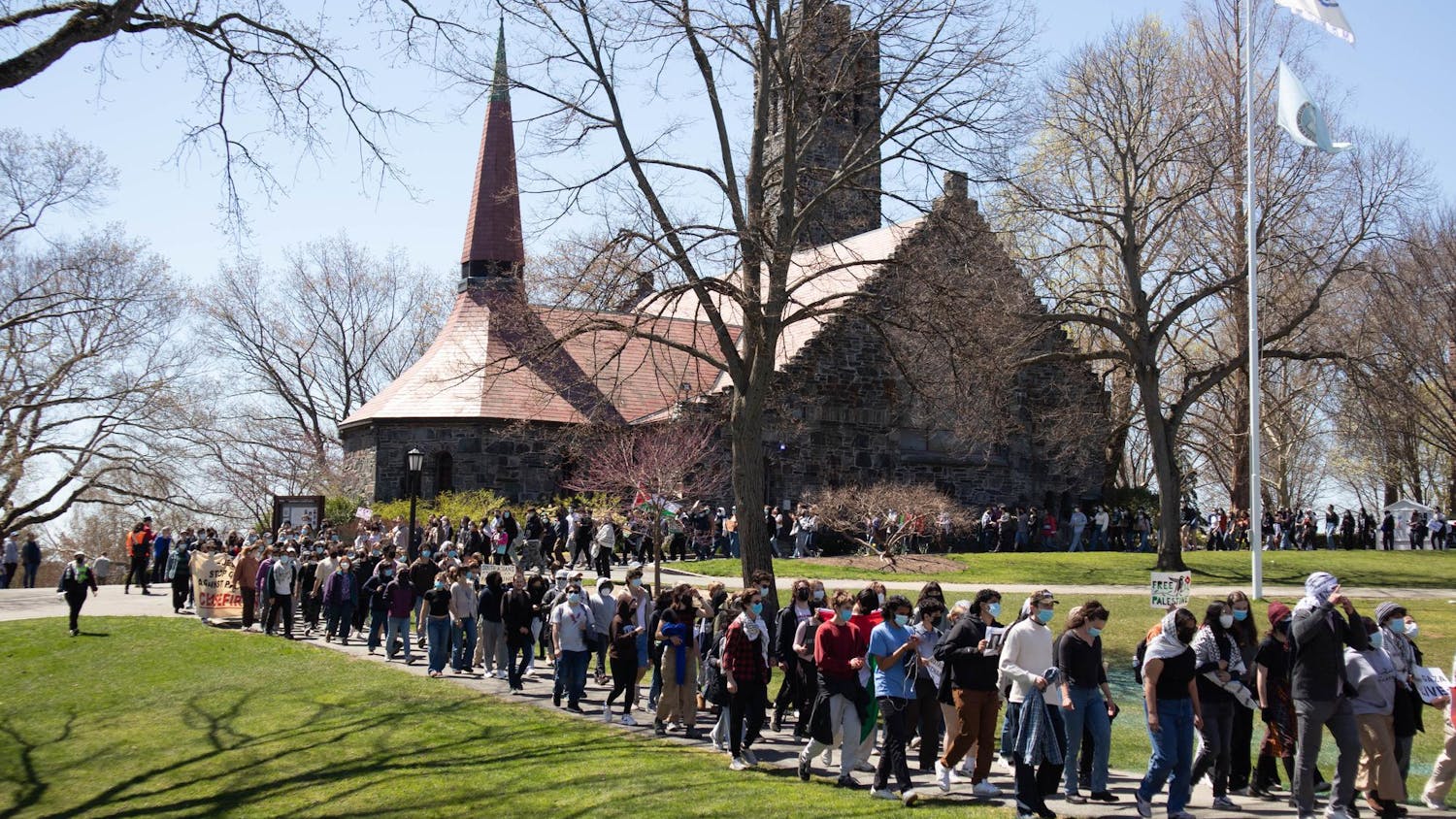Artists, peacebuilders, students and educators gathered last night in Distler Performance Hall for the Boston premiere of "Acting Together on the World Stage," a documentary about artistic groups around the world who use creativity in the performing arts to address conflict resolution.
Libana, a local women's world music ensemble, opened the program with a musical performance of pieces from countries including Bulgaria and India.
Audience members then participated in a candle lighting ritual, symbolizing the arts' uplifting, hopeful nature as well as the interaction of performers and audience members characteristic of the performing arts.
The documentary screened during the event is a product of Acting Together, a collaborative six−year project between Brandeis University and Theatre Without Borders, a New York−based theater group focused on connecting artists around the world.
"Our goal is to document the contribution of ritual and theater to peacebuilding … and to support artists and peacebuilders to collaborate and to understand how their work can strengthen each other," Cynthia Cohen, producer of "Acting Together on the World Stage" and director of Brandeis University's Program in Peacebuilding and the Arts told the Daily in an interview.
Film director Allison Lund herself became involved in the project as she was filming a documentary on the Yuval Ron Ensemble, a group that fosters creative collaboration between different cultures, ethnic groups and religions of the Middle East.
She said the Acting Together project demonstrates the healing power of the arts.
"It's really based on the idea that communities have the creative capacity to transform conflicts nonviolently," Lund told the Daily in an interview.
Cohen noted that collaboration between peacebuilding and the arts is instrumental in bringing about change.
"There are artists in many toxic regions all around the world who are given a lot of peacebuilding tasks, like speaking truth to power and resisting abuses of power in creative and nonviolent ways, like building bridges across differences, like grieving losses and helping communities address painful legacies in ways that they can move into the future," she said.
Senior Emily Pantalone, who was responsible for organizing logistics for the evening, believes there is a need for this collaboration. Pantalone became involved in the Acting Together project because she felt the emotional aspect of conflicts and post−conflict environments were not adequately addressed in the international system of state building and peacekeeping.
"I got really fed up with everything I was learning about nation−building and state−building processes because they focused so much on economics and development and government," she said in an interview.
Following the film screening, a panel discussion of leading experts and activists in the field discussed the meaning of cultural diplomacy.
Panelists shared a general consensus that involving the performing arts in diplomacy allows people to access their expressive potential and bring about more lasting change.
The film is one step in a larger movement to bring people together to share and discuss the artistic power of performance and the strategic power peacebuilding, Cohen said.
"I hope that people will feel inspired by meeting courageous artists that are featured in this field," Cohen said. "I hope that people leave with more confidence in the resilience of human communities and human beings and our ability to find creative ways to address the conflict and divisions in our community."
"It's really a celebration of creativity in zones of violent conflict, where so much energy is devoted to destruction," she said.





